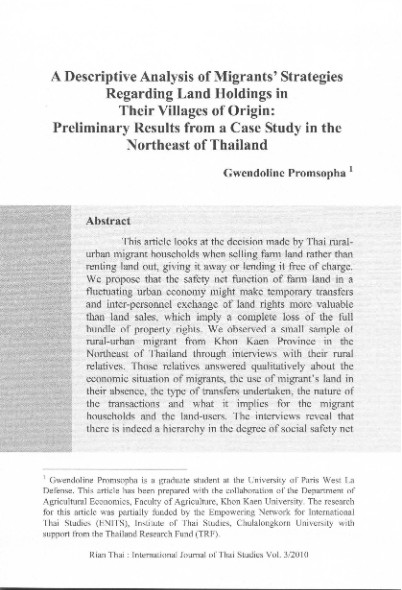Gwendoline Promsopha
Abstract
This article looks at the decision made by Thai rural-urban migrant households when selling farm land rather than renting land out, giving it away or lending it free of charge. We propose that the safety net function of farm land in a fluctuating urban economy might make temporary transfers and inter-personnel exchange of land rights more valuable than land sales, which imply a complete loss of the full bundle of property rights. We observed a small sample of rural-urban migrant from Khon Kaen Province in the Northeast of Thailand through interviews with their rural relatives. Those relatives answered qualitatively about the economic situation of migrants, the use of migrant's land in their absence, the type of transfers undertaken, the nature of the transactions and what it implies for the migrant households and the land-users. The interviews reveal that there is indeed a hierarchy in the degree of social safety net function that can be safeguarded through each type of transfers; land sales reduce considerably the access to the safety net directly or indirectly related to farm land, while land loans guarantee the best access to rural social protection. The safety net function of farm land for rural-urban migrants and how it affects the nature of farm land exchanges cannot be reduced to a simple analysis of asset property and needs to be taken into account within the wider complexity of the social network and rural ties in providing consumption smoothing mechanisms.
(Published in Rian Thai: International Journal of Thai Studies, Volume 3/2010, Page 29-63)
Full Text : Download
